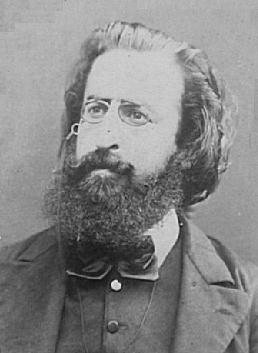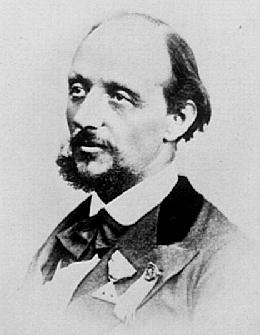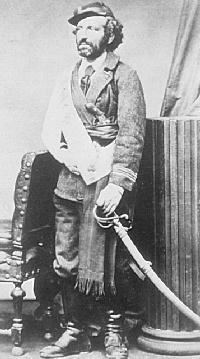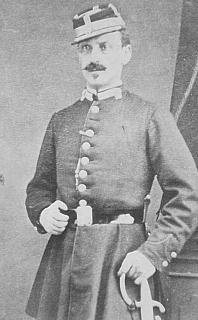
Lissagaray: History of the Paris Commune of 1871
We then did what we had to do: nothing provoked the Paris insurrection. (Dufaure’s speech against amnesty, session of 18th May, 1876.)

The execution was as foolish as the conception. On the 18th of March, at three o'clock in the morning, several columns dispersed in various directions to the Buttes Chaumont, Belleville, the Faubourg du Temple, the Bastille, the Hôtel-de-Ville, Place St. Michel, the Luxembourg, the thirteenth arrondissement and the Invalides. General Susbielle marched on Montmartre with two brigades about 6,000 men strong. All was silent and deserted. The Paturel brigade took possession of the Moulin de la Galette without striking a blow. The Lecomte brigade gained the Tower of Solferino only meeting with one sentinel, Turpin, who crossed bayonets with them and was hewn down by the gendarmes. They then rushed to the post of the Rue des Rosiers, stormed it, and threw the National Guards into the caves of the Tower of Solferino. At six o'clock the surprise was complete. M. Clémenceau hurried to the Buttes to congratulate General Lecomte. Everywhere else the cannon were surprised in the same way. The Government triumphed all along the line, and D'Aurelles sent the papers a proclamation written in the conqueror’s vein.
There was only one thing wanting — teams to convey the spoil. Vinoy had almost forgotten them. At eight o'clock they began to put some horses to the pieces. Meanwhile the faubourgs were awaking and the early shops opening. Around the milkmaids and before the wineshops the people began talking in a low voice; they pointed to the soldiers, the machine-gun [a multiple-barrelled gun, forerunner of the modern machine-gun] levelled at the streets, the walls covered with the still wet poster signed by M. Thiers and his Ministers. The spoke of paralysed commerce, suspended orders, frightened capital:
‘Inhabitants of Paris, in your interest the Government has resolved to act. Let the good citizens separate from the bad ones; let them aid public force; they will render a service to the Republic herself,’ said MM. Pouyer-Quertier, De Larcy, Dufaure and other Republicans. The conclusion is borrowed from the phraseology of December: ‘The culpable shall be surrendered to justice. Order, complete, immediate and unalterable, must be re-established.’ They spoke of order — blood was to be shed.
As in our great days, the women were the first to act. Those of the 18th March, hardened by the siege — they had had a double ration of misery — did not wait for the men. They surrounded the machineguns, apostrophized the sergeant in command of the gun, saying, ‘This is shameful; what are you doing there?’ The soldiers did not answer. Occasionally a non-commissioned officer spoke to them: ‘Come, my good women, get out of the way.’ At the same time a handful of National Guards, proceeding to the post of the Rue Doudeauville, there found two drums that had not been smashed, and beat the rappel. At eight o'clock they numbered 300 officers and guards, who ascended the Boulevard Ornano. They met a platoon of soldiers of the 88th, and, crying, Vive la République! enlisted them. The post of the Rue Dejean also joined them, and the butt-end of their muskets raised, soldiers and guards together marched up to the Rue Muller that leads to the Buttes Montmartre, defended on this side by the men of the 88th. These, seeing their comrades intermingling with the guards, signed to them to advance, that they would let them pass. General Lecomte, catching sight of the signs, had the men replaced by sergents-de-ville, and confined them in the Tower of Solferino, adding, ‘You will get your deserts.’ The sergents-de-ville discharged a few shots, to which the guards replied. Suddenly a large number of National Guards, the butt-end of their muskets up, women and children, appeared on the other flank from the Rue des Rosiers. Lecomte, surrounded, three times gave the order to fire. His men stood still, their arms ordered. The crowd, advancing, fraternized with them, and Lecomte and his officers were arrested.
The soldiers whom he had just shut up in the tower wanted to shoot him, but some National Guards having succeeded in disengaging him with great difficulty — for the crowd took him for Vinoy — conducted him with his officers to the Château-Rouge, where the staff of the battalions of the National Guard was seated. There they asked him for an order to evacuate the Buttes. He signed it without hesitation. [82] The order was immediately communicated to the officers and soldiers of the Rue des Rosiers. The gendarmes surrendered their chassepots, and even cried, Vive la République! Three discharges from the cannon announced the recapture of the Buttes.
General Paturel, who wanted to carry away the cannon, surprised at the Moulin de la Galette, came into collision with a living barricade in the Rue Lepic. The people stopped the horses, cut the traces, dispersed the artillerymen, and took back the cannon to their post. In the Place Pigalle, General Susbielle gave the order to charge the crowd collected in the Rue Houdon, but the chasseurs, intimidated, spurred back their horses and were laughed at. A captain, dashing forward, sabre in hand, wounded a guard, and fell, pierced with balls. The General fled. The gendarmes, who commenced firing from behind the huts, were soon dislodged, and the bulk of the soldiers went over to the people.
At Belleville, the Buttes Chaumont, the Luxembourg, the troops fraternized everywhere with the crowds that had collected at the first alarm.
By eleven o'clock the people had vanquished the aggressors at all points, preserved almost all their cannon, of which only ten had been carried off, and seized thousands of chassepots. All their battalions were now on foot, and the men of the faubourgs commenced unpaving the streets.
Since six o'clock in the morning D'Aurelles had had the rappel beaten in the central quarters, but in vain. Battalions formerly noted for their devotion to Trochu sent only twenty men to the rendezvous. All Paris, on reading the posters, said ‘This is the coup-d'état. At twelve o'clock D'Aurelles and Picard sounded the alarm: ‘The Government calls on you to defend your homes, your families, your property. Some misguided men, under the lead of some secret leaders, turn against Paris the cannon kept back from the Prussians.’ These reminiscences of June, 1848, this accusation of indelicacy toward the Prussians, failing to rouse any one, the whole Ministry came to the rescue: ‘An absurd rumour is being spread that the Government is preparing a coup-d'état. It has wished and wishes to make an end of an insurrectional Committee, whose members only represent Communist doctrines.’ These alarms, repeatedly sounded, raised in all 500 men.[83]
The Government were at the Foreign Office, and, after the first reverses, M. Thiers had given the order to fall back with all the troops on the Champs-de-Mars. When he saw the desertion of the National Guards of the Centre, he declared that it was necessary to evacuate Paris. Several Ministers objected, wanted a few points to be guarded — the Hôtel-de-Ville, its barracks occupied by the brigade Derroja, the Ecole Militaire — and that they should take a position on the Trocadero. The little man, quite distracted, would only hear of extreme measures. Lefô, who had almost been made a prisoner at the Bastille, vigorously supported him. It was decided that the whole town should be evacuated, even the forts on the south, restored by the Prussians a fortnight before. Towards three o'clock the popular battalions of the Gros Caillou marched past the Hôtel-de-Ville, headed by drums and trumpets. The Council believed itself surrounded.[84] M. Thiers escaped by a back stair, and left for Versailles so out of his senses that at the bridge of Sèvres he gave the written order to evacuate Mont-Valérien.
At the self-same hour when M. Thiers ran away, the revolutionary battalions had not yet attempted any attack or occupied any official posts.[85] The aggression of the morning had surprised the Central Committee, as it had all Paris. The evening before they had separated as usual, giving themselves a rendezvous for the 18th, at eleven o'clock at night, behind the Bastille, at the school in the Rue Basfroi; the Place de la Corderie, actively watched by the police, no longer being safe. Since the 15th new elections had added to their numbers, and they had appointed a Committee of Defence. On the news of the attack, some ran to the Rue Basfroi, others applied themselves to raising the battalions of their quarters: Varlin at the Batignolles, Bergeret, recently named chef-de-légion, at Montmartre, Duval at the Panthéon, Pindy in the third arrondissement, Faltot in the Rue de Sèvres. Ranvier and Brunel, without belonging to the Committee, were agitating Belleville and the tenth arrondissement. At ten o'clock a dozen members met together, overwhelmed with messages from all sides, and receiving from time to time some prisoners. Positive intelligence only came in towards two o'clock. They then drew up a kind of plan by which all the federalist battalions were to converge upon the Hôtel-de-Ville, and then dispersed in all directions to transmit orders.[86]
The battalions were indeed on the alert, but did not march. The revolutionary quarters, fearing a resumption of the attack, and ignoring the plenitude of their victory, were strongly barricading themselves, and remained where they were. Even Montmartre was only swarming with guards in search of news, and disbanded soldiers for whom collections were being made, as they had had nothing to eat since the morning. Towards half-past three o'clock the Committee of Vigilance of the eighteenth arrondissement, established in the Rue de Clignancourt, was informed that General Lecomte was in great danger. A crowd, consisting chiefly of soldiers, surrounded the Château-Rouge and demanded the General.
 The members of the Committee of Vigilance, Ferré, Jaclard, and Bergeret, immediately sent an order to the commander of the Château-Rouge to guard the prisoner, who was to be put on trial. When the order arrived Lecomte had just left.
The members of the Committee of Vigilance, Ferré, Jaclard, and Bergeret, immediately sent an order to the commander of the Château-Rouge to guard the prisoner, who was to be put on trial. When the order arrived Lecomte had just left.
He had long been asking to be taken before the Central Committee. The chiefs of the post, much perturbed by the cries of the crowd, anxious to get rid of their responsibility, and believing this Committee was sitting in the Rue des Rosiers, decided to conduct the General and his officers there. They arrived at about four o'clock, passing through a terribly irritated crowd, yet no one raised a hand against them. The General was closely guarded in a small front room on the ground floor. There the scenes of the Château-Rouge recommenced. The exasperated soldiers asked for his death. The officers of the National Guard made desperate efforts to quiet them, crying, ‘Wait for the Committee.’ They succeeded in posting sentinels and appeasing the commotion for a time.
No member of the Committee had arrived when, at half-past four, formidable cries filled the street, and hunted by a fierce multitude, a man with a white beard was thrust against the wall of the house. It was Clément-Thomas, the man of June, 1848, the insulter of the revolutionary battalions. He had been recognized and arrested at the Chaussée des Martyrs, where he was examining the barricades.
 Some officers of the National Guard, a Garibaldian captain, Herpin-Lacroix, and some franc-tireurs had tried to stop the deadly mass, repeating a thousand times, ‘Wait for the Committee! Constitute a court-martial!’ They were jostled, and Clément-Thomas was again seized and hurled into the little garden of the house. Twenty muskets levelled at him battered him down. During this execution the soldiers broke the windows of the room where General Lecomte was confined, threw themselves upon him, dragging him towards the garden. This man, who in the morning had three times given the order to fire upon the people, wept, begged for pity, and spoke of his family. He was forced against the wall and fell under the bullets.
Some officers of the National Guard, a Garibaldian captain, Herpin-Lacroix, and some franc-tireurs had tried to stop the deadly mass, repeating a thousand times, ‘Wait for the Committee! Constitute a court-martial!’ They were jostled, and Clément-Thomas was again seized and hurled into the little garden of the house. Twenty muskets levelled at him battered him down. During this execution the soldiers broke the windows of the room where General Lecomte was confined, threw themselves upon him, dragging him towards the garden. This man, who in the morning had three times given the order to fire upon the people, wept, begged for pity, and spoke of his family. He was forced against the wall and fell under the bullets.
These reprisals over, the wrath of the mass subsided. They allowed the officers of Lecomte’s suite to be taken back to the Château-Rouge, and at nightfall they were set at liberty.
While these executions took place, the people, so long standing on the defensive, had begun to move. Brunel surrounded the Prince Eugène Barracks, held by the 120th of the line. The colonel, accompanied by about a hundred officers, assuming lofty airs, Brunel had them all locked up. Two thousand chassepots fell into the hands of the people.
 Brunel continued his march by the Rue du Temple towards the Hôtel-de-Ville. The Imprimerie Nationale was occupied at five o'clock. At six the crowd attacked the doors of the Napoléon Barracks with hatchets. A discharge was made, fired from the opening, and three persons fell; but the soldiers made signs from the windows of the Rue de Rivoli, crying, ‘It is the gendarmes who have fired. Vive la République!’ Soon after they opened the doors and allowed their arms to be carried off.[87]
Brunel continued his march by the Rue du Temple towards the Hôtel-de-Ville. The Imprimerie Nationale was occupied at five o'clock. At six the crowd attacked the doors of the Napoléon Barracks with hatchets. A discharge was made, fired from the opening, and three persons fell; but the soldiers made signs from the windows of the Rue de Rivoli, crying, ‘It is the gendarmes who have fired. Vive la République!’ Soon after they opened the doors and allowed their arms to be carried off.[87]
At half-past seven the Hôtel-de-Ville was almost surrounded. The gendarmes who occupied it fled by the subterranean passage of the Lobau Barracks. About half-past eight Jules Ferry and Vabre, entirely abandoned by their men, left without any order by the Government, also stole away. Shortly after Brunel’s column arrived at the place and took possession of the Hôtel-de-Ville, where Ranvier arrived at the same time by the quays.
The number of the battalions augmented incessantly. Brunel had given order to raise barricades in the Rue de Rivoli, on the quays, manned all the approaches, distributed the posts, and sent out strong patrols. One of these, surrounding the mairie of the Louvre, where the mayors were deliberating, almost succeeded in catching Ferry, who saved himself by jumping out of a window. The mayors returned to the mairie of the Place de la Bourse.
They had already met there during the day together with many adjuncts, much offended at the senseless governmental attack, waiting for information and for ideas. Towards four o'clock they sent delegates to the Government. M. Thiers had already made off. Picard politely showed them out. D'Aurelles washed his hands of the whole affair, saying the lawyers had done it. At night, however, it became necessary to take a resolution. The federal battalions already surrounded the Hôtel-de-Ville and occupied the Place Vendôme, whither Varlin, Bergeret, and Arnold had conducted the battalions of Montmartre and the Batignolles. Vacherot, Vautrain, and a few reactionaries spoke of resisting at any price, as though they had had an army to back them. Others, more sensible, sought for some expedient. They thought they could calm down everything by naming as prefect of police Eduard Adam, who had distinguished himself against the insurgents of June, 1848, and as General of the National Guards the giddy Proudhonist Langlois, a former Internationalist, who had been for the movement of the 31st of October in the morning, against it in the evening, and was named deputy, thanks to a scratch received while gesticulating at Buzenval. The delegates went to propose this brilliant solution to Jules Favre. He refused outright, saying, ‘We cannot treat with assassins.’ This comedy was only played to justify the evacuation of Paris, which he concealed from the mayors. During the conference it was announced that Jules Ferry had abandoned the Hôtel-de-Ville. The other Jules feigned surprise, and engaged the mayors to call out the battalions of order for the purpose of replacing the vanished army.
They returned overwhelmed by this raillery, humbled at having been altogether left in the dark about the intention of the Government. If possessed of some political courage, they would have gone straight to the Hôtel-de-Ville, instead of commencing to deliberate again in their mairie. At last, at ten o'clock in the morning, Picard informed them that they might bring out their Lafayette. They immediately sent Langlois to the Hôtel-de-Ville.
Some members of the Central Committee had been there since ten o'clock, generally very anxious and very hesitant. Not one of them had dreamt that power would fall so heavily upon their shoulders. Many did not want to sit at the Hôtel-de-Ville. They deliberated. At last it was decided that they would only stay during the two or three days wanted for the elections. Meanwhile it was necessary to ward off any attempt at resistance. Luilier was present, buzzing around the Committee, in one of his intervals of grave lucidity, promising to ward off all danger and appealing to the vote of Vauxhall. He had played no part during the whole day.[88] The Committee committed the blunder of appointing him commander-in-chief of the National Guard, while Brunel, who had rendered such service since the morning, was already installed in the Hôtel-de-Ville.
At three o'clock, Langlois, the competitor of Luilier, announced himself. He was full of confidence in himself, and had already sent his proclamation to the Journal Officiel. ‘Who are you?’ the sentinels asked him. ‘General of the National Guard,’ answered Langlois. Some deputies of Paris, Lockroy, Cournet, etc. accompanied him. The Committee consented to receive them. ‘Who has named you?’ said they to Langlois. ‘M. Thiers.’ They smiled at this madman’s aplomb. As he pleaded the rights of the Assembly they put him to the test; ‘Do you recognize the Central Committee?’ ‘No.’ He decamped and ran away after his proclamation.
The night was calm, fatally calm for liberty. By the gates of the south Vinoy marched off his regiments, his artillery, and his baggage to Versailles. The disbanded troops jogged along peevishly, insulting the gendarmes.[89] The staff, true to its traditions, had lost its head, and left in Paris three regiments, six batteries, and all the gunboats, which it would have sufficed to leave to the current of the river. The slightest demonstration by the federals would have stopped this exodus. Far from thinking of closing the gates, the new commander of the National Guard — he boasted of it before the council of war — left open all issues to the army.